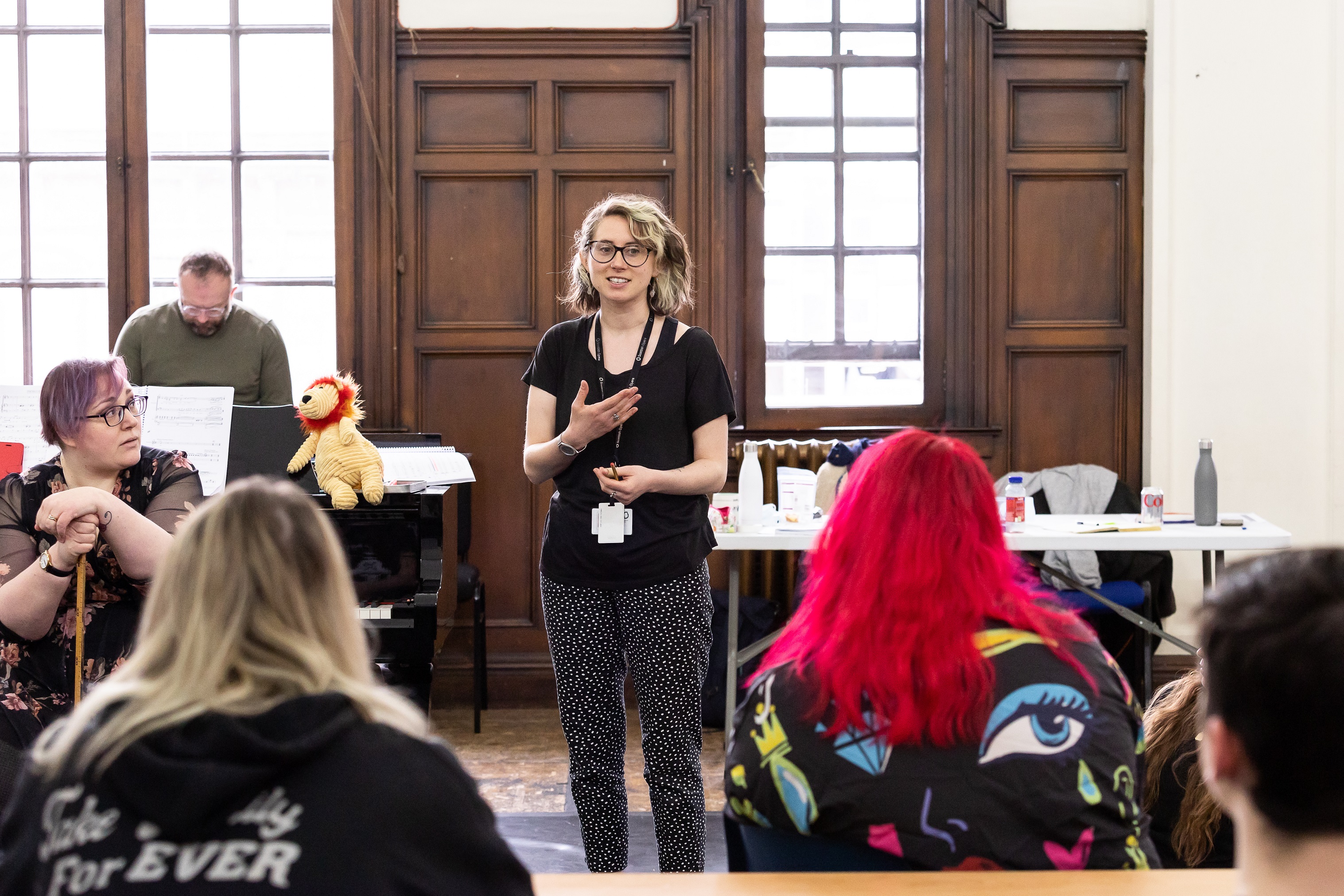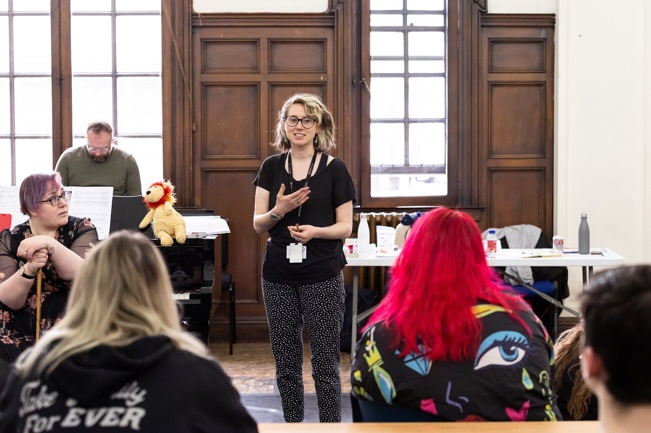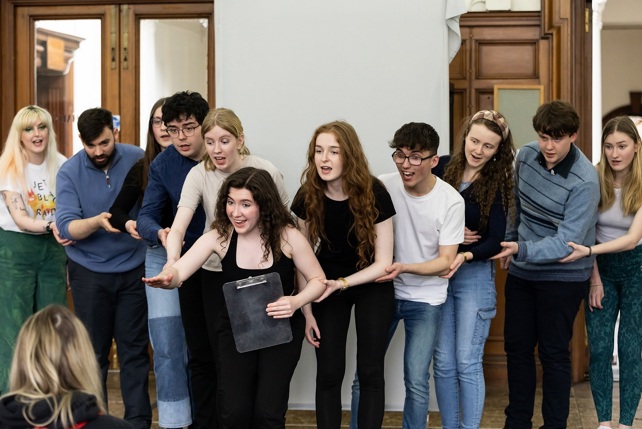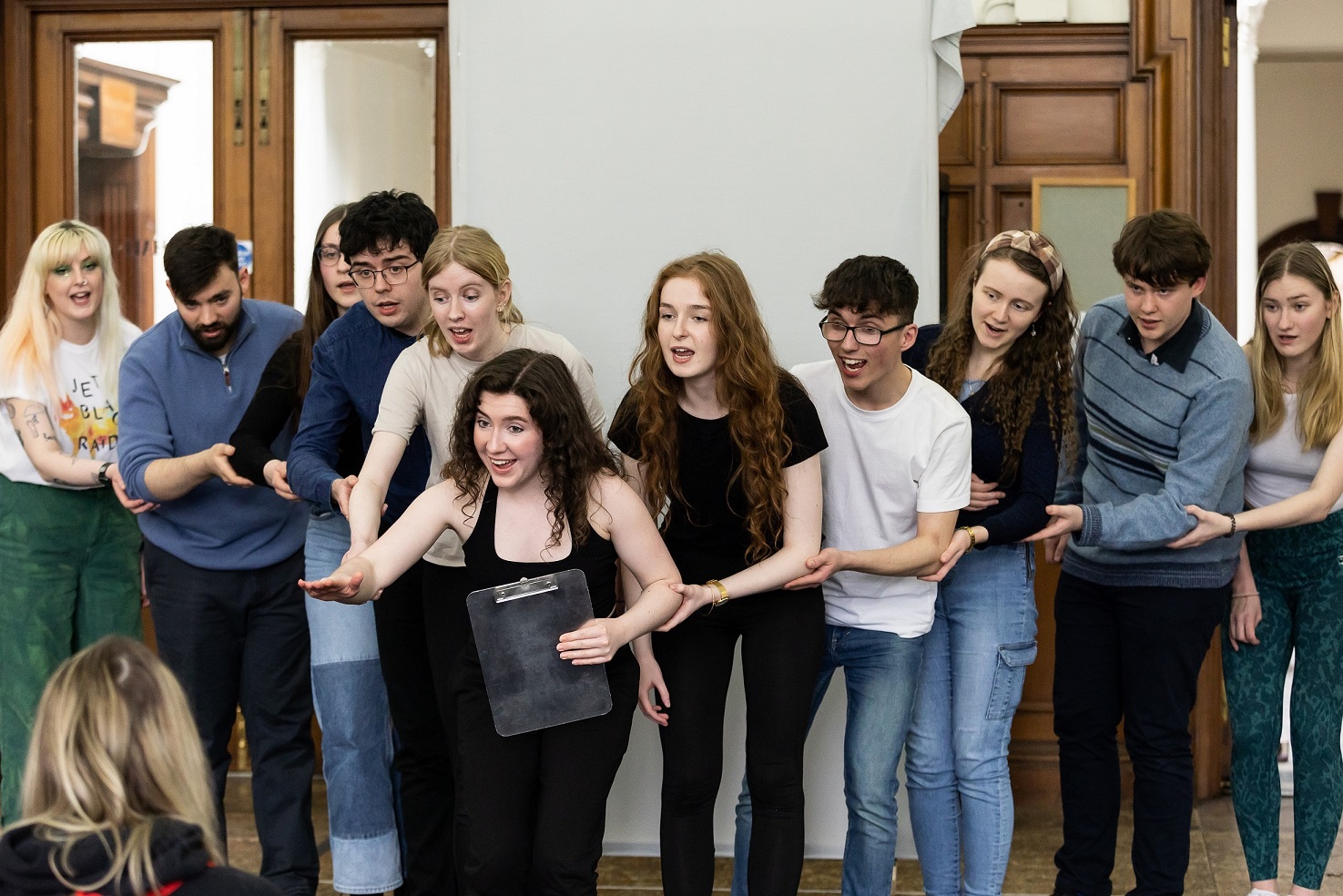Ahead of the world premiere of Rubble at the Company’s Elmbank Crescent premises on 30 and 31 July we caught up with composer Gareth Williams and director and pantomime legend Johnny McKnight about the new work.
This is the duo’s third third collaboration for Scottish Opera, having previously worked on The Last One Out (2012) and Hand for the 2013 Opera Highlights tour.
Gareth initially found inspiration for Rubble in Graham Greene’s short story ‘The Destructors’. ‘It’s got young people with agency, they’re dark, scary creatures,’ Gareth says; the story follows a gang tearing down a home that escaped bombing in World War II. ‘There is an ethical world that you don’t normally get when talking about teenagers. And I know whatever I bring to the table [Johnny] McKnight will do something completely different with – something comes out the other side that terrifies me.’
In this case, Johnny took Greene’s midcentury milieu to something more recognisable: a 1980s Glaswegian care home and the abuses that took place therein. ‘I was on my holidays and heard about the historic sexual abuse cases coming through the Court. That lit something in me. It felt urgent and necessary, and I’d never seen young people be allowed to speak up on stage on behalf of another generation of young people and their trauma. Now this generation is holding people accountable for things that have gone on too long – like Black Lives Matter, #MeToo – there’s a resurgence of young folk claiming authority.’
Rubble was commissioned for the 50th Anniversary of Scottish Opera Education & Outreach in 2021; the pandemic, however, had other plans. The longer development has been somewhat of a blessing. ‘I sat at the piano, sang songs myself, and sent them to Johnny and Roxana [Haines, the director of Rubble],’ says Gareth, ‘it was nice early on to get an idea of how this thing was working.’

 Roxana Haines in rehearsals for Scottish Opera Young Company's Rubble . Credit Sally Jubb
Roxana Haines in rehearsals for Scottish Opera Young Company's Rubble . Credit Sally Jubb
Johnny wrote the libretto before the pandemic, and he doesn’t envy Gareth’s composition process – alone in his basement. ‘Gareth had to take a very dark story into a very dark time and live with it – submerged in his own Dante’s Inferno,’ he jokes. ‘Whenever we work together, we always have a laugh but end up making really dark work. We try to keep a humorous lens – I think that’s how Irish and Scottish nationalities delve into that, where there’s real darkness there’s also real humour. And the rehearsal room is joyful – the darker the material, the more joyful the room needs to be.’
‘We did a reading of the libretto, and I drove home and crashed my car,’ Gareth remembers, thankfully with a laugh. ‘I couldn’t stop thinking about it. Then I found out I was going to be a dad. It sharpened these things in my mind. It’s such a privilege to look after a little vulnerable person that I found myself even more angry at people who wouldn’t do that job.’
This is the first opera Gareth and Johnny have written together for young people – though only opera would consider singers between the ages of 17 and 21 young: ‘they’re the exact age of pop stars,’ says Gareth, ‘these voices have agency, it never felt like there was an alternative.’

 Scottish Opera Young Company in rehearsals for Rubble. Credit Sally Jubb.
Scottish Opera Young Company in rehearsals for Rubble. Credit Sally Jubb.
Johnny approaches young characters no differently to so-called ‘adult’ roles. ‘At 17 I believed I knew the world, so if anything you have to write characters who are much more definite in who they are. You have to write with a real sense of authenticity and also know that there are young people in the room that will happily say if something doesn’t fit or feels tacky.’
A libretto written in Scots presents musical challenges, and Gareth has made sure rhythms and open vowels remain uniform. The specific working class dialect is key for both creators. ‘If you don’t see yourself represented, you don’t see a future for yourself,’ says Johnny. ‘So when you put accents you don’t normally associate with opera on a stage, we shake the system, in the same way it’s happening with Shakespeare. Any art form that’s robust enough can be prodded and interrogated and put into different types of voices. We want to challenge what opera is and what it can do.’
Do the pair have hopes for the next generation of artists? Vehemently so. ‘All I want is people engaging in the live arts,’ say Johnny. ‘The only way you keep the arts vital and interesting and relevant is to nurture the next generations, and to keep their enthusiasm, ideas, and things that matter so that the arts become future proof. It’s exciting to work with young artists at the start of their professional careers – and if not professional careers they’ll still value the arts and for me that’s everything.’
Gareth agrees. ‘I don’t have any despair about the future of storytelling. I worry about access; I worry about free education. It’s good to give these kids an opportunity to get together and sing properly – these are the programmes that keep doors open. It’s our job to make sure as many people can access this work on both sides as possible.’
Tickets are on sale now for Rubble here